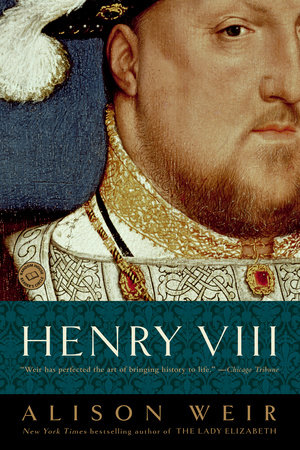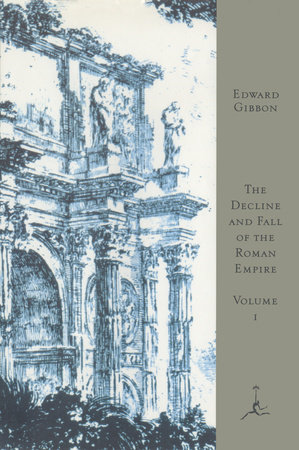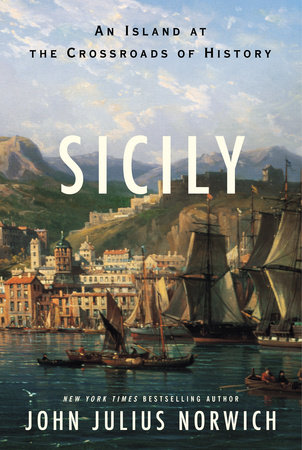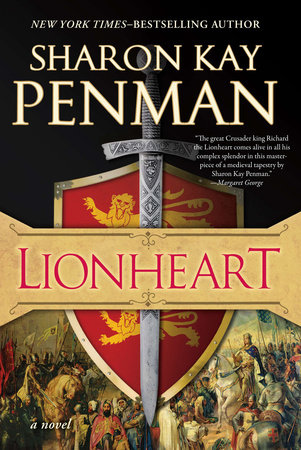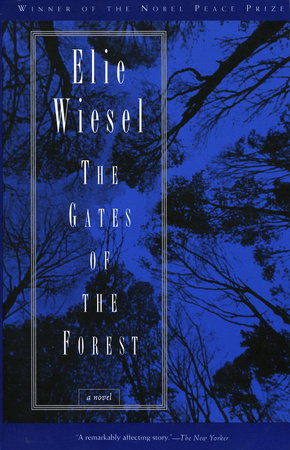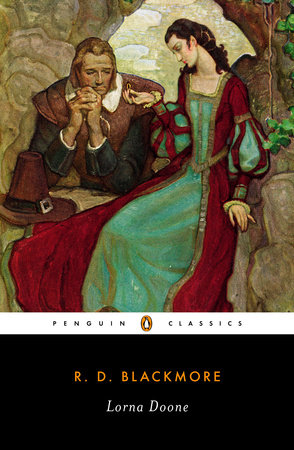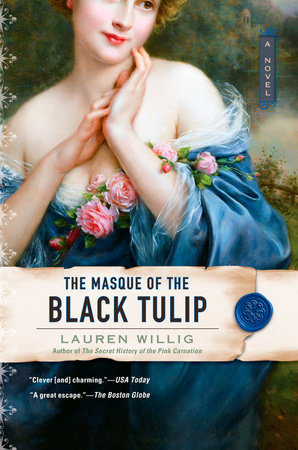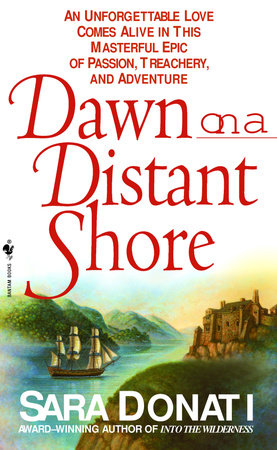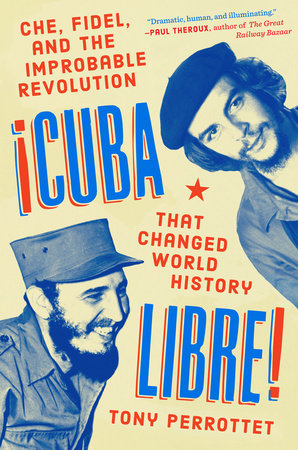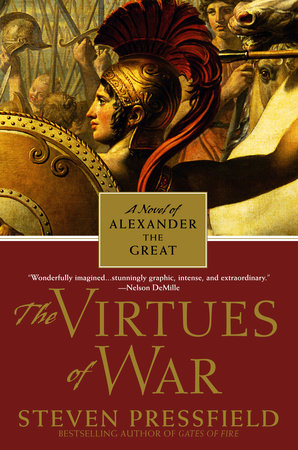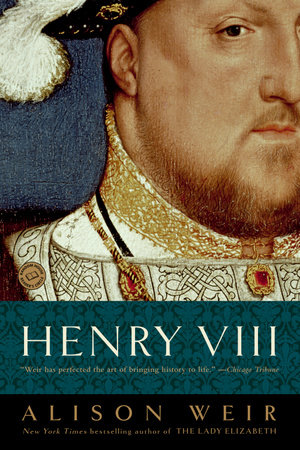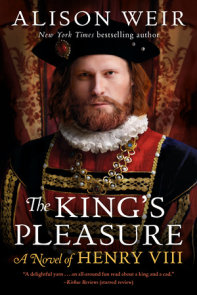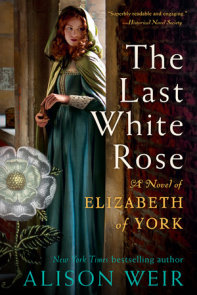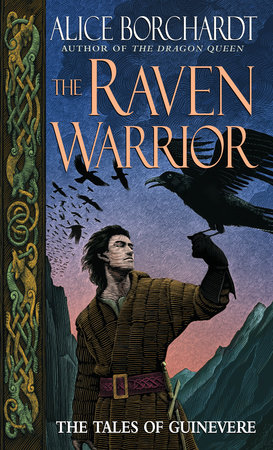Author Q&A
A Conversation with Alison Weir
When did you first become interested in history?
Alison Weir: In 1965, when I was fourteen, I read my first adult novel;
it was a historical novel about Katherine of Aragon, and I could not
put it down. When I finished it, I had to find out the true facts behind
the story and if people really carried on like that in those days. So I
began to read proper history books, and found that they did! It was a
short step from doing research to writing my own books, and by the
age of fifteen I had completed a three-volume compendium of facts
on the Tudors as well as a biography of Anne Boleyn, and had begun
to compile genealogical information for a dictionary of kings and
queens, which would, more than two decades later, be the basis of my
first published book, Britain’s Royal Families.
At school, up to the age of sixteen, I found history boring, for we
were studying the Industrial Revolution, which was all about acts,
trade unions and the factory system, and I wanted to know about
people, because it is people who make history. My teachers were
unaware that I was spending all my free periods and lunch breaks
researching my own history projects in the school library. I did
pass my GCE exam, but was told my grade was not good enough
to study history at an advanced level. This was a great disappointment,
as the subject for the advanced course was the Tudors and Stuarts,
something about which I already knew a great deal. I would love
to think that the teachers who excluded me have seen my pub-lished
work.
When did you begin to write professionally?
AW: During the early 1970s, after attending teacher training college
with a view to teaching history, I spent four years researching and
writing a book about Henry VIII’s wives, but this was rejected by
publishers on the grounds that it was too long–something of an
understatement, since it filled 1,024 manuscript pages typed on both
sides and without double spacing. In 1991, a much revised and edited
version of this manuscript was published as my second book, The Six
Wives of Henry VIII.
In 1981, I wrote a biography of Jane Seymour, which was rejected
by Weidenfeld and Nicholson as being–wait for it–too short. The
publishers, however, put me in touch with my present firm of literary
agents who, in the course of a conversation about which subject
I should write about, rejected my suggestion of a book about Lady
Diana Spencer (who became Princess of Wales that year) on the
grounds that people would soon lose interest in her! Instead, it was
agreed that I should write a biography of Isabella of France, wife of
Edward II, but this was never finished because the births, very close
together, of my children intervened in 1982 and 1984, and I had very
little time for writing.
In 1987, it occurred to me that my dictionary of genealogical details
of British royalty–which I had revised eight times over twenty-two
years–might be of interest to others, so I rearranged the contents
once more, into chronological order. Britain’s Royal Families became
my first published book, in 1989, from The Bodley Head, and the rest
of the story is–dare I say it?–history!
How do you go about writing your books?
AW: I research from contemporary sources as far as possible; fortunately,
most of those for the periods I have written about are in print.
I use secondary sources to see what views historians take on my
chosen subjects, but in the end I make up my own mind, basing
my conclusions as far as possible on contemporary evidence.
I transcribe my information into chronological order, under date
headings, so that when I have finished my research, I have a very
rough draft of the book. This method has the curious advantage of
highlighting discrepancies and often new interpretations of events,
chronological patterns, and unexpected facts emerge. Anyone who
has read The Princes in the Tower will know how startlingly well this
method of research worked for that particular book.
How would you describe your role as a historian?
AW: I am not a revisionist historian. I do not start with a theory and
then try to fit the facts around it. I draw my conclusions from the
known facts. As my research progresses, I gain some idea of the viewpoint
I will take, but I am always ready to alter it if need be.
You have to consider the known facts in detail and avoid supposition
in order to get as near to the truth as possible. You must not only
take into account what is written about someone or something, but
who wrote it, since many sources are biased, prejudiced, or unreliable.
Where possible, I verify my facts from reliable sources only, and if the
only source is suspect, I say so.
What is your aim in writing history?
AW: I want to bring history and its characters to life by including as
much personal detail as possible, by inferring new ideas from the
known facts, and by researching the political and social background so
thoroughly that my subjects are set in an authentic context. Many
people have told me that my books read like novels. Perhaps this is because,
when I write, I feel I am really there, so strong is my feeling for
my subject. On occasion, I have been so moved by the events I have
been describing that I have felt like crying. The old adage that truth is
stranger than fiction is more than true for me, and if (as a couple of
recent reviewers have complained) it is old-fashioned to recount history
as a rattling good story–which in many ways it is–then I am
happy to be thought outdated.
When you were researching and writing about Henry VIII,
did you come to like him?
AW: Surprisingly enough, yes! Actually, I’ve liked him for a long time.
I’ve always felt that he has been greatly misjudged and perceived as a
caricature of his real self. Therefore, this book is a sympathetic study
that looks at events from the King’s viewpoint. For example, most
historians have focused on Anne Boleyn during the days leading up
to her execution. I’ve focused on Henry. Few people have taken into
account the fact that his only son was dying a lingering death from
tuberculosis at this time.
I think, when it comes to historical characters, you have to judge
them by the values of their own time, not by ours. Henry was no
tyrant, as Richard III was; only in his last years did he become the
fat, diseased autocrat of popular perception. In fact, I wanted to use
a little-known portrait of the young Henry, painted when he was
eighteen, slim and long haired, on the jacket, but my publishers
felt–probably quite correctly–that no one would know who it was!
Yet my aim was to present to my readers a different view of Henry:
the real Henry, whom I had come to know very well through my
research.
What is your opinion of screen portrayals of Henry VIII?
AW: I suppose the enduring image is that created by Charles Laughton
in Alexander Korda’s The Private Life of Henry VIII (1933), but it’s the
classic caricature, and very far removed from the real Henry. A far
better portrayal is that by Keith Michell in the BBC drama series The
Six Wives of Henry VIII (1969), followed by a film of the same name.
Here is a pretty authentic Henry: an acting tour de force and a delight
to watch! Robert Shaw’s portrayal in A Man for All Seasons (1966) was
very different but equally convincing.
Did you uncover anything new while you were researching the
book?
AW: Yes, quite unexpectedly. I certainly didn’t set out to be controversial,
but I discovered a letter written by Henry VIII containing
evidence that places a whole new construction on the reasons for
Anne Boleyn’s fall. This evidence makes sense of something that historians
have puzzled over for centuries: why Henry could have consented
to the destruction of a woman he had so greatly desired and
loved.
Was Henry VIII the lecher of legend?
AW: Possibly, although if he was, he was very discreet about it. For
this reason, we have only fragments of information about his sex life,
but I’ve uncovered enough of them to make me revise the opinion I
arrived at in my earlier book, The Six Wives of Henry VIII.
One historian has famously described Henry VIII as "that
great puppet." Do you agree with this assessment?
AW: Not at all. Henry was certainly suggestible and sometimes swayed
by the opinions of others, but the evidence overwhelmingly suggests
that for the most part he remained firmly in control. In fact, he was
the one usually doing the manipulating. Given his grasp of affairs, his
powerful intellect, encyclopaedic memory, and efficient communications
network, it was not easy for any man to rule him. He was the
King, and he never let anyone forget it.
